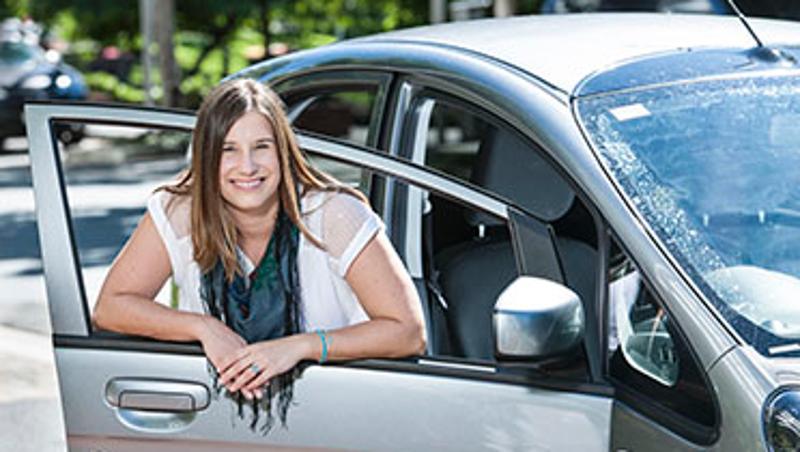
Is it price, perception or the sales person stopping Australians buying electric cars?
Researcher Alina Dini, from QUT's Science and Engineering Faculty, said Australia trailed the developed world when it came to buying plug-in cars with just under 2000 sold in the last three years compared to more than 300,000 in the US.
"While we might think these statistics reflect America's larger population, in real terms it means eight plug-in cars were sold per 100,000 Australians in the last five years, compared to 99 sold per 100,000 Americans in the US during the same period," Ms Dini said.
Ms Dini, who hails from the Silicon Valley in the US and has previously worked for the world's biggest electric car manufacture Tesla, is researching the barriers to buying electric vehicles and wants to know whether the "consumer experience" plays a role when buying a car.
"Simply put, why is it that electric cars are not taking off in Australia and are car sales people blocking the buyers?" she said.
"There are the obvious barriers such as the availability of charging stations, the lack of government regulation of transport fuel efficiency or support for petrol alternatives, the limited number of vehicle choices for plug-ins and the higher costs of plug-in cars, but what I want to know is how the consumer experience impacts the customer's decision."
As someone already convinced about the benefits of going electric, Ms Dini said her car buying experience highlighted the role car dealerships had in the decision-making process of whether or not to purchase a plug-in vehicle.
"I didn't need convincing. I went in wanting to buy an electric car. I was happy to pay the price but I was faced with a salesman who really knew nothing about the vehicle, nothing about the benefits, he wasn't really interested in selling an electric vehicle," she said.
"This got me thinking that if we have a small number of people wanting to buy electric vehicles and they face obstacles in the traditional sales process, then this is just another barrier to changing people's attitudes towards electric vehicles."
Ms Dini said preliminary research had shown that buyers exposed to electric vehicles were less opposed to a plug-in car.
"At test ride events where consumers got to experience an electric vehicle for the first time, within just 10 minutes they had changed their opinion of electric cars.
"Given that so many people these days do their research before walking into a car dealership it is important that when a buyer does step through the doors they are greeted with a retail experience that is encouraging and not discouraging of electric vehicles."
As part of Ms Dini's research, she is looking for Australians who have either recently purchased, are interested in purchasing, or work for an organisation interested in purchasing a plug-in vehicle.
To take part in the study, visit http://alinadini.wix.com/pevmarketexperience
Media contact:
Sandra Hutchinson, QUT Media (Tue, Wed), 07 3138 9449 or media@qut.edu.au
After hours, Rose Trapnell, 0407 585 901


